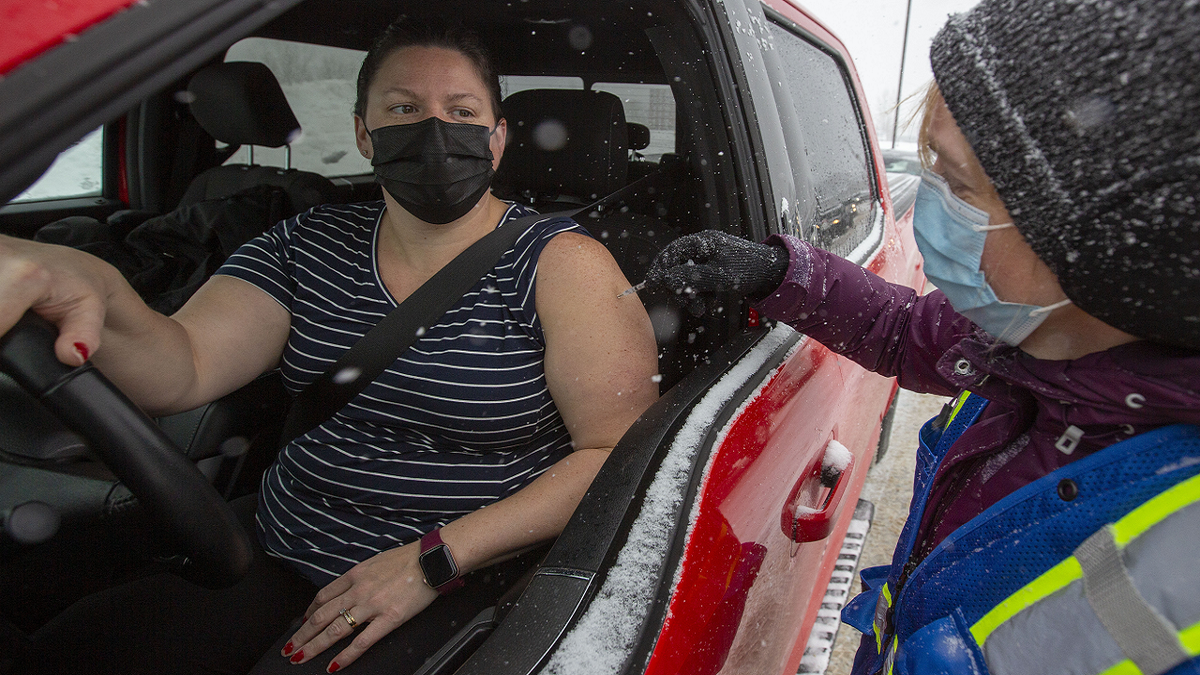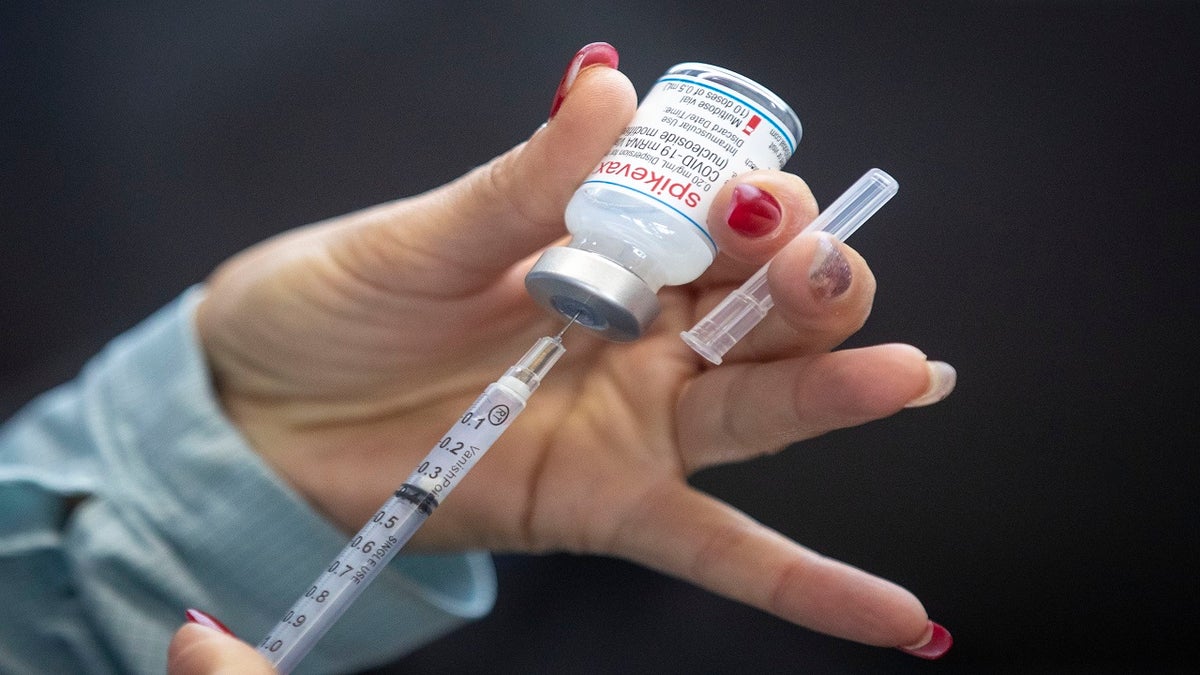Omicron poses new threat to fitness industry, gym memberships
Jeff Sanders, board chair of the New York State Fitness Alliance, discusses the challenges of requiring vaccines and masks inside gyms.
All schools in Canada’s most populous province will be shut down and move to online learning because of a record number of coronavirus infections fueled by the omicron variant, Ontario’s premier announced Monday.
Premier Doug Ford also announced the closure of indoor dining. Gyms and cinemas will also close and hospitals have also been told to pause all non-urgent surgeries
Ontario is seeing record new infections and there are concerns about hospital capacity.

Dr. Elaine Ma administers a vaccine during a drive-through COVID-19 vaccine clinic at St. Lawrence College in Kingston, Ontario, on Sunday. (Lars Hagberg /The Canadian Press via AP)
COVID-19 SPREAD IN THE US: HOW OMICRON IMPACTS EACH STATE BY POPULATION
"I know online learning is not ideal," Ford said. "The fact is omicron spreads like wildfire."
The reopening of schools has been delayed until at least Jan. 17. Just last week, the government announced schools would open on Wednesday.
Schools shut down for in class learning last April because of record cases driven by the delta variant. They had since resumed in class learning.

Toronto Maple Leafs' Ilya Mikheyev (65) celebrates with teammates after scoring his team's fifth goal against Ottawa Senators in front of empty seats during third period of an NHL hockey game in Toronto on Saturday. (Chris Young/The Canadian Press via AP)
Ford said they are expecting a "tsunami" of cases and noted just one percent of 100,000 new cases a day could overwhelm hospitals. Ontario has a population of more than 14.7 million.
"The math isn't on our side," Ford said.
Retail stores will be limited to 50% capacity and indoor social gatherings will be capped at five people.
The new measures will begin Wednesday.

A person draws out Moderna vaccine during a drive through COVID-19 vaccine clinic at St. Lawrence College in Kingston, Ontario, on Sunday. (Lars Hagberg /The Canadian Press via AP)
CLICK HERE TO GET THE FOX NEWS APP
"They had no choice," said Dr. Andrew Morris, a professor of infectious diseases at the University of Toronto and the medical director of the Antimicrobial Stewardship Program at Sinai-University Health Network.
"It was going to be brutal one way or the other. Show me who isn't facing these realities? Anywhere?" he said.









































